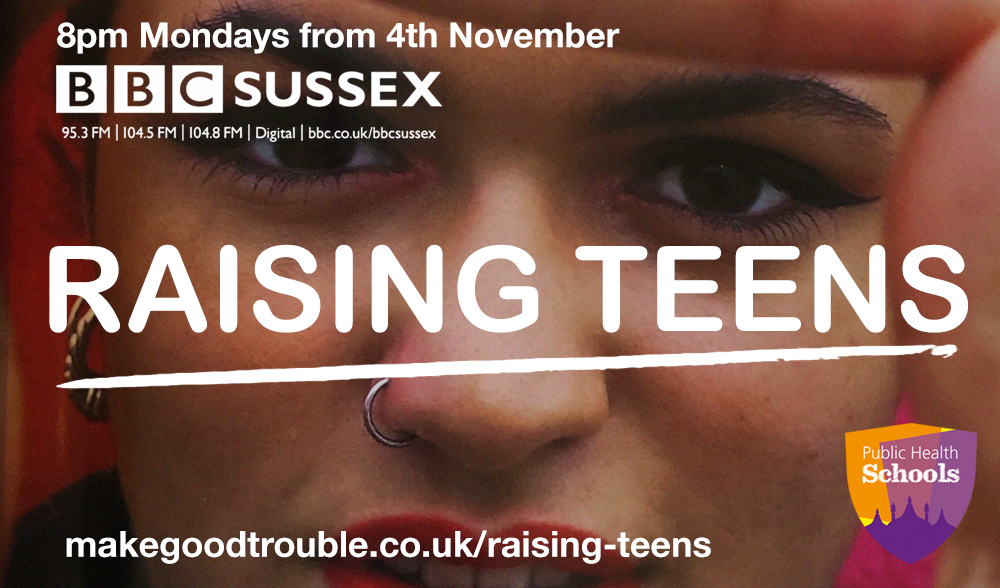Raising Teens looked into the topic of alcohol last night. We covered teens’ attitudes to drinking and how that might be affected by their parents, by a culture that seems to encourage and glamorise drinking and advertising.
We also looked at how teens can find help if a parent drinks too much. Ceri Walker’s powerful story about how she coped as a child was really moving. There’s a ton of great advice for parents and teens from our guests, Piers Henriques from NACOA (the National Association for Children of Alcoholics), Fran Carpenter from Oasis Project, helping women and families affected by drugs and alcohol, Luci Hammond from RU-OK, a substance misuse service for Brighton & Hove, and Ceri Walker, the daughter of an alcoholic parent.
🔊 Listen to Raising Teens: Teens, Parents & Booze
There are some useful links for places to get help and advice below, meanwhile, do watch Ceri’s powerful video for NACOA.
Here are our guest’s top tips:
Fran Carpenter:
“If someone’s worried about their parents’ drinking, maybe speak to someone at the school or a trusted adult in their life. Don’t be scared to talk about your worries. For parents worried about their own drinking, there’s support at Oasis, and mutual aid in the community like AA. We know it’s scary and a really difficult time but when people start making that change, positive things really do happen in their life and it can be a real oportunity to strengthen families and relationships.”
Ceri Walker:
“There’s also Young Oasis which has art therapists, so children who are struggling with things like emotions and wondering who to talk to, there’s so many different ways they can explore that through arts therapy.
“I want to say to all young people, you didn’t cause it, it’s not your fault. Do seek help in whatever way you feel is appropriate. Whatever it is, for you and your family, please just do something.”
Piers Henriques:
Shame isn’t something you should try to pretend isn’t there. A lot of the people who call [NACOA], they are being made to feel ashamed because their parents are telling them not to call because they are shaming the family. So it’s not easy and there’s no easy top tip, but try and give to somebody in that situation other than, try and express yourself. Empowering yourself through expressing yourself can be incredibly good but it’s not necessarily all on you… overcoming shame is something doesn’t go away very easily. It’s just about working on it over time and realising that your problems aren’t unjustified. People are there for you and they understand the pain you’ve gone through is real.
Luci Hammond:
“We’re all non-judgemental services. You’re. not going to get someone telling you what to do, telling you you’re a bad person, a bad parent, you’re just going to get someone who wants to hear you and wants to help you, and the hardest thing is that first phone call but once you’re through that, for most people it’s easier from thereon.”
Help & Advice
Alcohol Change UK has a useful fact sheet on alcohol and parenting
NACOA, National Association for Children of Alcoholics, offers advice and information, including a helpline 0800 358 3456
RU-OK? Part of Brighton & Hove Children’s Services, working alongside under 18s whose lives are affected by substance misuse in Brighton & Hove
Oasis Project, Brighton – helping people affected by drugs and alcohol
Young Minds’ offer information for parents worried about their child’s use of alcohol or drugs
Young Minds’ offer information for parents worried about their child’s use of alcohol or drugs

